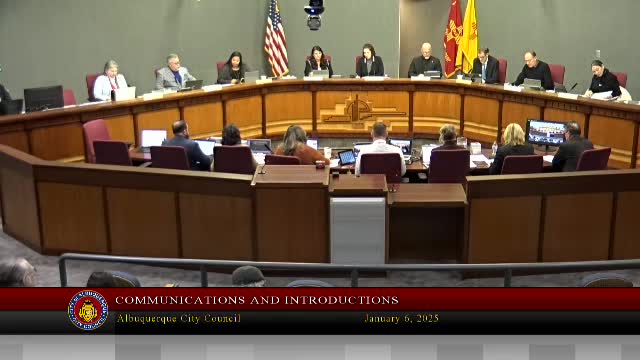Council adopts downtown vacant-premises ordinance to incentivize reuse; adds registration fees
Get AI-powered insights, summaries, and transcripts
Subscribe
Summary
The City Council passed O-2461 creating a downtown vacant premises registration, modest fees, and narrow exemption/amendments after multiple stakeholder meetings and floor amendments. Supporters said it will spur reuse; opponents worried about enforcement and data access.
The Albuquerque City Council approved ordinance O-2461 (commonly called the downtown vacant-premises ordinance), a regulatory package intended to encourage activation and reuse of vacant buildings in the downtown core. The council approved sponsor-led amendments and a final package after public testimony from downtown residents, business groups and neighborhood representatives.
Key points: The ordinance requires owners of qualifying vacant premises in a defined downtown boundary to register properties and pay graduated annual fees tied to ground-floor vacancy. The draft includes exemptions, a process for special exceptions, and fees scaled by ground-floor square footage. City staff and the sponsor said the fees are modest and intended to nudge owners to remediate and market properties rather than hold them vacant.
Why it matters: Downtown advocates said the measure will make building owners more accountable for long-vacant properties that reduce tax base and neighborhood vitality. “Every empty building represents a missed opportunity for jobs, businesses, and tax revenue,” said Carlos Michelin, a downtown resident. Opponents cautioned that the ordinance must include public data access and careful implementation to avoid misuse or unintended consequences.
Amendments and debate: Councilors adopted multiple floor amendments to clarify definitions (ground-floor square footage, usable floor area), to limit city enforcement authority, and to remove a broadly worded “special exemption” clause. The council also considered and rejected shifting fee administration to a future downtown business improvement district and debated implementation timing and community notification. Supporters said the final ordinance includes guardrails.
Votes: The ordinance passed on a 7-2 vote following floor amendments. Councilors said the ordinance aims to make better use of existing infrastructure and spur small-scale redevelopment without new public works.
Ending: The ordinance directs city staff to implement a registration system and to report on enforcement and use of collected fees. Administration and councilors said they expect to monitor outcomes and consider boundary or fee adjustments after initial implementation.
